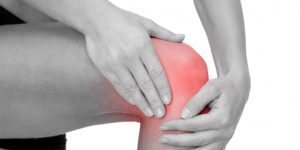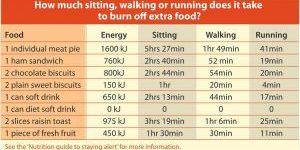Dreaming
Sleep medication
Sleeping medication may be helpful to overcome short term needs or significant life events, such as grief or high stress events. Sleeping medication can be used to improve sleep quantity and quality but should only be used for short periods to avoid dependency, as dependency will only lead to longer term sleep problems. It is……
Napping
Effective napping is a skill, which cannot be achieved by everyone. Napping cannot replace sleep, but can assist in times of sleep debt, extreme tiredness and/or when heightened alertness is required for your safety, such as driving a car. Naps may improve subsequent performance and alertness for a period of time, ranging from 2 to……
What type of exercise should you do?
When you are planning activity you don’t have to choose one activity. Think outside the square. The only limit to Active Living is safety. There are three types of training that will improve physical and functional fitness: aerobic, strengthening and stretching. Aerobic activities Aerobic exercise is any extended activity that makes you breathe hard while……
Avoiding injury when exercising
Regardless of your exercise choice, one truth applies to everyone: preparation can prevent injury. Many common exercise injuries stem from overlooking two basics: warm-up and stretching. Warm-up: The idea of a warm-up is to swing your body into gear gradually – not suddenly. A good warm-up consists of slow, deliberate, rhythmic movements that are similar……
Fitness levels
REGULAR PHYSICAL ACTIVITY leads to improved physical and functional (i.e. real-life, every day activities) fitness which has a major impact on reducing fatigue. This is because increasing fitness enables our bodies to operate more efficiently right throughout the day, which means our perceived effort to carry out daily activities is much less. If you do……
Mood and sleep
It’s no surprise that sleep, or a lack of sleep, affects our mood. One sleepless night will cause most people to be more irritable, short-tempered and stressed. After a good night’s sleep, your mood often returns to normal. Whilst sleep does affect mood, mood also affects sleep. People suffering anxiety or stress will experience agitation,……
What is fatigue amnesia?
Have you ever driven into your driveway at home and on arrival thought to yourself, How did I get here? I cannot recall the trip home or the last part of the trip. You may have suffered from fatigue amnesia. Amnesia, in simple terms, is the loss of memory. Fatigue amnesia is where a person……
Managing mental health with your lifestyle
A healthy lifestyle is paramount for the treatment and prevention of mood disorders. Healthy lifestyle includes a combination of healthy eating, regular exercise and reduced alcohol consumption. Lifestyle changes help to relieve the symptoms and may even prevent mood disorders. Exercise The therapeutic benefits of exercise include boosting confidence and self-esteem, relieving muscular tension, promoting……
Body weight & fatigue
EXCESS BODY FAT INCREASES THE LIKELIHOOD OF SOMEONE GETTING FATIGUED Imagine walking around all day with a backpack on containing a 10 kg brick. Wouldn’t you feel more tired at the end of the day? Well, body fat is “excess weight” you simply have to carry around. The more you have to carry, the more……
Types of mood disorders
Mental health can generally can be seperated into three categories: stress, anxiety, and depression and can all directly or indirectly increase the risk of fatigue. They are all common and treatable illnesses. Approximately 1 in 4 people will suffer from a mental illness throughout their lifetime. So it is likely that you or someone you……










